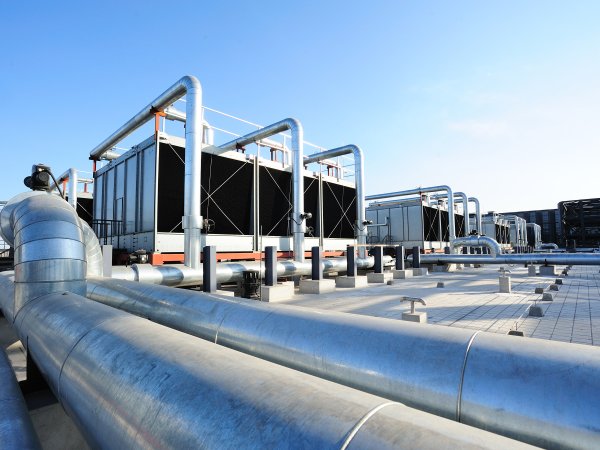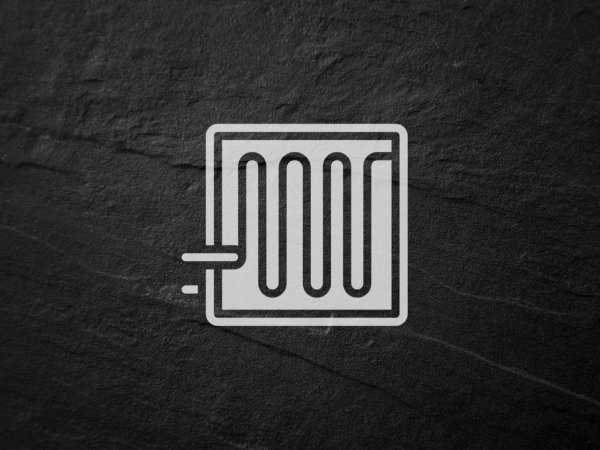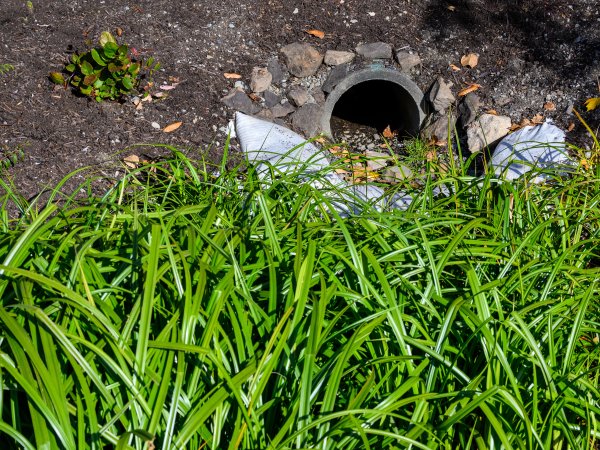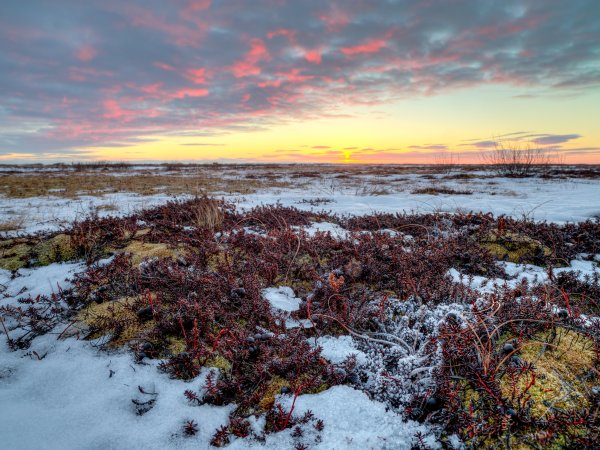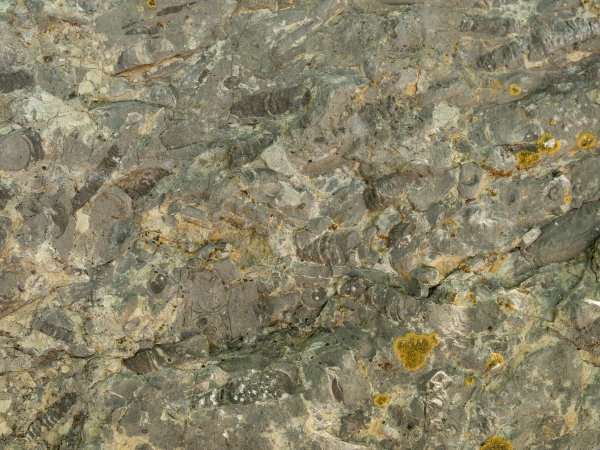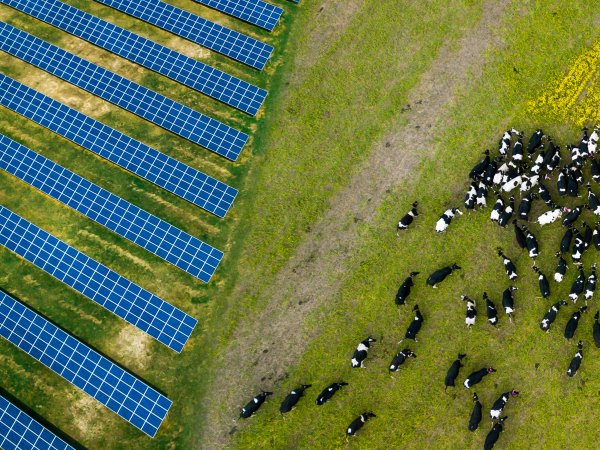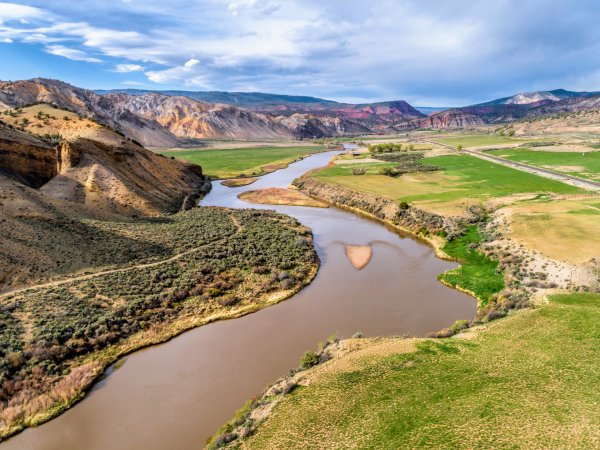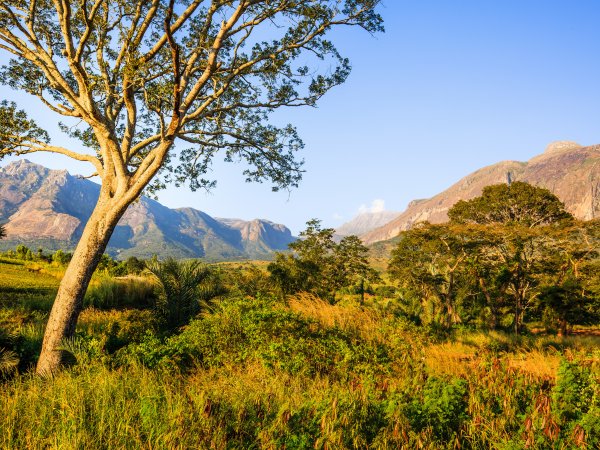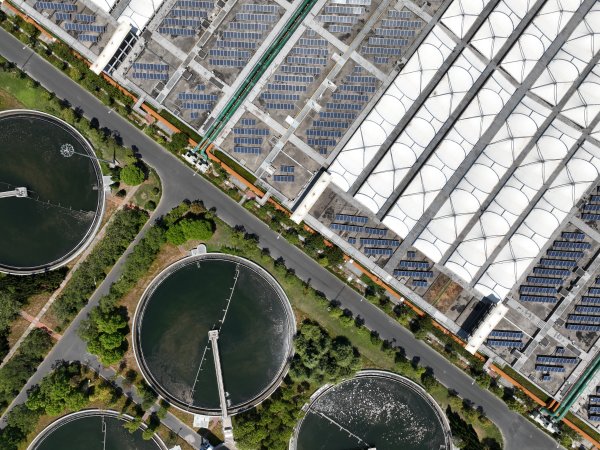For the 2023 Seed Grant Program, 75+ researchers from the following 10 colleges/units and 7 campuses were awarded funding for 19 collaborative research projects aligned with IEE's 5 research themes:
- Applied Research Laboratory
- College of Agricultural Sciences
- College of Arts and Architecture
- College of Earth and Mineral Sciences
- College of Engineering
- Huck Institutes of the Life Sciences
- Penn State Law
- College of the Liberal Arts
- College of Medicine
- Eberly College of Science
- Penn State Abington
- Penn State Behrend
- Penn State DuBois
- Penn State Harrisburg
- Penn State Hazelton
- Penn State Hershey
- Penn State University Park

Funded Projects
The following 19 projects were awarded seed grant funding in the 2023 IEE Seed Grant Program.
A Multi-Disciplinary Approach To Mitigating Climate Impacts Of Aviation Contrails
An interdisciplinary team is studying contrails and other emissions from aircraft to develop new technologies for more sustainable aviation as air travel’s impact on climate change is anticipated to increase.
Additive Manufacturing of Elastocaloric Cooling Shape Memory Alloy: From Materials and Device Fabrication to System-Level Analysis for High-Performance Buildings
Researchers are developing a more efficient and sustainable cooling solution towards future urban high-performance building systems using shape memory alloys fabricated by additive manufacturing.
Assessing the Energy Impacts of Electric Lighting Using Alternative Spectral Sensitivities
Researchers are developing new lighting efficacy metrics based on human visual response to light to improve the design and evaluation of lighting systems.
Binderless Low Temperature Densification Process for Production of Graphite Based Bipolar Plates for Fuel Cells
This project is developing a low-temperature, environmentally friendly, and cost-effective process to produce graphite-based bipolar plates for fuel cells.
Biorenewable Multifunctional Composites for Structural/Dielectric Applications
This project is developing a bio-based dielectric composite from epoxidized soybean oil, epoxy resin, and ceramic nanofillers for potential applications in dielectric storage energy devices.
Community Science-Driven Data Collection of Pennsylvania Urban Stormwater Control Measures Augmented by Machine Learning
A team of researchers is creating a comprehensive inventory of existing urban stormwater control measures through community volunteer participation and machine learning to improve urban stormwater management.
Constraining Olivine Carbonation Rates in Igneous Mafic Formations
A team of researchers is investigating the carbonation rates of mafic rocks as a function of temperature, pressure, mineralogy, and solution chemistry to develop more efficient methods for carbon capture and sequestration.
CoRe at PSU: Growing Cold Regions Research Capabilities at Penn State University
A team of researchers is conducting experiments to quantify and understand small-scale erosive processes in thawing permafrost, which will help to develop resilient solutions to the challenges imposed by climate change in cold regions.
Developing Water Treatment Technologies for PFAS Removal in Disadvantaged Communities
A team of researchers is evaluating the ability of biochar, moringa seeds, and low-energy membranes to remove PFAS chemicals from drinking water and will provide information to homeowners and Extension partners about the effectiveness and cost of these treatment options.
Exploring the Impacts of Flooding Events on Substance Use in Rural Appalachia
Researchers are investigating the impact of flooding events on substance use outcomes and substance use service provision in rural Appalachia, where flooding events are becoming more common due to climate change.
Fungal Upcycling of Waste Plastic Film
A research team is investigating the potential of fungal degradation to break down plastic into biologically tractable carbon and will evaluate the impact of this technology at scale.
Impact of CO2 Mineralization on the Evolution of Storage-Rock Microstructure
Two researchers are investigating the fundamental link between mineral precipitation and dissolution in porous microstructures and developing a model to predict site-specific assessment and optimization of CO2 injectivity, leakage potential, and ultimate storage or mineralization capacity of underground formations.
Next Generation Floating Offshore Wind Turbine
A research team is working to make floating offshore wind turbines (FOWTs) commercially viable in the near term by creating a turbine with lower overall weight, reduced mechanical loads, and lower buoyancy requirements than existing FOWT designs.
Piloting a Global Youth Storytelling and Research Lab
This project is launching The Global Youth Storytelling and Research Lab, which will be a transnational research ecosystem that will engage youth leaders in climate and environmental justice research.
Rational Design of Bio-Inspired and Earth-Abundant Catalysts for Carbon Dioxide Reduction into Fuels and Fine Chemicals
A research team is using computational techniques to design and test earth-abundant iron-based sulfide catalysts for CO2 conversion into fuels and fine chemicals.
Sustainable and Just Pathways to Agrivoltaics in Pennsylvania
This project is investigating the social, economic, and environmental impacts of agrivoltaics in Pennsylvania, with the goal of developing best practices for the co-location of solar panels and agriculture.
Understanding Compound Stressors and Stakeholder Tradeoffs of Agricultural Adaptation to Climate Change in the Colorado River
A team of researchers is developing new capabilities in synthetic weather generation and improved agricultural modeling to understand how climate change and agricultural adaptation will affect water availability in the Upper Colorado River Basin.
Understanding the Material Impacts of Restoration on Landscapes and People in Africa: Learning Cases from Malawi
This project is developing an integrated methodology to measure the socio-environmental outcomes of forest landscape restoration in Malawi, with the goal of informing policy and practice on restoration monitoring.
Understanding the Scope, Drivers, and Energy Justice Implications of Solar Adoption in the United States Wastewater Sector
This project is developing a database of wastewater treatment plants with solar adoption data and a statistical model to explore potential drivers of solar adoption, with the goal of understanding the energy justice implications of renewable energy adoption in the wastewater sector.
RFP
Penn State’s Institutes of Energy and the Environment (IEE) Seed Grant Program is intended to foster basic and applied research on strategic interdisciplinary topics that leverage faculty expertise across the University. The Seed Grant Program strives to:
- Develop new interdisciplinary research teams and position them for high-impact research and substantial external funding success
- Pursue novel research in IEE’s theme areas, especially high-risk proof of concept projects
- Promote research development and mentorship between junior and senior faculty
Quick Links
Important Dates
| Date | Event |
|---|---|
| November 28, 2022, 5pm (EST) | Proposal Submission Deadline |
| February 2023 | Funding Decisions Announced |
| April 2023 | Grant funds made available and must be expended by June 30, 2024 |
| September 30, 2024 | Final report due |
Synopsis and Themes
IEE is seeking proposals that address at least one of our core themes, which have been updated to reflect IEE’s current strategic priorities.
Climate and Ecosystem Change
Managing the risks of anthropogenic climate change poses significant challenges now and into the future. Warmer and more extreme weather events will increase the risk of natural disturbances, increase the burden of pests and pathogens, threaten public health and biodiversity, and expose vulnerabilities in critical infrastructural systems. The burden of climate resilience and adaptation will fall unequally and inequitably, burdening people of color and rural and poor communities disproportionately. IEE’s commitment to supporting interdisciplinary research in energy and the environment means we have a unique opportunity to identify solutions to these impacts across natural, social, and built systems. Building on Penn State’s distinctive foundation in climate change research, we seek new and innovative advances in the following areas:
- Climate science: including but not limited to climate or ecosystem modeling, ecological forecasting, data visualization, and ecosystem or human impacts.
- Climate risk: including but not limited to natural hazards, adaptation, decision-making, and social and ecological resilience.
- Climate solutions: including but not limited to justice, health, policy, natural solutions, climate-smart technology, infrastructure, and ecosystem management.
- Climate-induced ecological change
In addition to climate-focused work, Penn State is focused on ecosystem change more broadly and welcomes proposals in this area, including resilience and adaptation to change, provision of ecosystem-related goods and services, connections, and feedbacks across ecological systems (including natural and human ecology), rapid evolutionary change (including impacts to biodiversity), and ecological foundations. For more, see the Ecology Institute. We welcome projects that leverage Penn State’s existing resources such as the Shale Hills Critical Zone Observatory.
Health and the Environment
The National Academy of Sciences, Engineering, and Medicine (NASEM) has an “Environmental Health Matters Initiative” to “enhance the nation’s ability to alleviate harmful environmental impacts on human health.” The initiative is sponsored by major government funders as well as the private sector. We particularly welcome proposals that respond to this initiative. In addition, Penn State has major strengths in exposure assessment and monitoring both historic and predictive, which are of value during times of environmental change and disruption. Linking these historic established strengths to health outcomes is an underused opportunity. Penn State's Clinical and Translational Research Institute has access to large, structured databases; Penn State clinical investigators can establish panel studies of vulnerable populations, in many settings—urban, rural, and globally. Biobehavioral health and health and human development are also subject to environmental impacts. Furthermore, the linkage between gene-environment interactions provides an additional window into vulnerabilities. Measuring the health benefits of environmental remediation strategies is another area of research need that requires interdisciplinary teams. Expanding and leveraging this knowledge can enhance health in a myriad of different ways and address current and future environmental challenges. Areas of focus include but are not limited to the following:
- Climate change and health, including both health impacts and solutions
- Impacts of air pollution, including topics such as improving exposure monitoring in vulnerable communities and how it impacts the severity of COVID-19
- Energy and health policy (including health drivers of energy choices as well as energy- related drivers of health outcomes)
- Water and health, including aquatic toxicology, microplastics, and more
- Health and the built environment
- Health, the environment, and environmental equity/justice considerations
Integrated Energy Systems
Improvements in energy efficiency, infrastructure stability, and a reduction in carbon emissions require changes in existing and planned technologies. Legal and policy frameworks that encourage, rather than thwart, the adoption of appropriate technological solutions are also needed. We are looking for ways to develop, advance, and disseminate innovative methods for all aspects of energy: production, infrastructure, utilization, engineered and natural carbon sequestration, energy storage and management, related environmental questions, energy efficiency of buildings, transportation, businesses, and other modes of consumption. Research to develop policy foundations supporting next-generation energy systems is an integral part of this theme and will be considered for co-funding by the Penn State Center for Energy Law and Policy. At a time of rapid energy system transformation, these components will form the basis of the next generation of integrated energy systems to deliver clean, safe, abundant, affordable, and reliable energy as a foundation for economic and human development. In addition to this broad theme, we are particularly interested in projects that focus on the following:
- Negative carbon emissions (including the technical, biophysical, and socio-political opportunities and challenges associated with natural and technical solutions that generate negative emissions)
- Renewable energy technologies
- Resilience of energy systems in response to stressors, particularly (but not limited to) extreme weather events and cyber-stressors
- Legal and regulatory frameworks that incorporate governance or equity issues, or that can drive down non-hardware costs of low-carbon energy technologies
- Science-based legal and regulatory frameworks for emerging energy systems (e.g. microgrids, hydrogen, coupled systems, advanced nuclear, wireless electricity, etc.)
- Energy consumption behaviors and implications for policy design
- Optimization for the planning and operations of integrated, low-carbon, and smart energy systems
Urban Systems
Anthropogenic and environmental changes are profoundly impacting the health and sustainability of humans and the environment. Across the globe, the trend toward urbanization is driving resource needs and impacts with water, food, and energy while disparately impacting low-income/minority populations. This theme is meant to catalyze research partnerships related to urban systems, including the urban/rural interface, buildings, transportation, and more. As a new theme, we welcome ideas or ways to catalyze inter-disciplinary work in this space and recommend looking at the National Science Foundation’s information on Communities in the 21st Century for background. Potential ideas include the following:
- Health and human performance impacts of indoor and outdoor urban environments
- Finance and policy for net zero/carbon neutral building energy efficiency
- Innovative, low-carbon materials and technologies for high-performance buildings
- Understanding and accelerating the transformation of energy systems, urban systems, and environmental systems for sustainability
Water and Biogeochemical Cycles
Water is foundational to the health, safety, and standard of living of people, the condition and productivity of ecosystems, the vibrancy of communities and economies, and even the stability of nations. Despite its importance, we continue to struggle across Pennsylvania, the nation, and globally to achieve many water-dependent social objectives, such as reliable water supply and sanitation, sustainable food and energy production, functioning ecosystems, and community resilience to the climate change extremes of flooding and drought. The resulting impacts are disproportionately experienced in communities of color and otherwise under-represented communities. Innovations in STEM disciplines are necessary, but not sufficient, for achieving water-related objectives in ways that are sustainable, resilient, and socially just, and must be joined by innovations in a spectrum of social sciences.
We seek innovative research that advances understanding and demonstrates solutions for addressing water-related challenges, with priority given to proposals focused on:
- Water and human health, including health impacts from degraded water quality (e.g., in urban or agricultural landscapes or from contaminants of emerging concern such as microplastics, PFAS) and in populations experiencing water insecurity.
- Aquatic ecosystems and ecosystem services, including critical processes for sustaining or restoring functional aquatic ecosystems and related economically, socially, or culturally valued services.
- Water-related resilience to climate change impacts, including human communities or ecosystem resilience in the face of extreme events (droughts, flooding, and sea level rise).
Particular consideration under all of these topic areas will be given to proposals that focus on or encompass elements of policy/law, ethics, and social justice, economics, finance and actuarial science, and other social sciences.
Program Guidelines
Eligibility
All Penn State faculty members (tenured, tenure track, and fixed term) who hold an appointment of half-time or more at any Penn State campus are eligible to submit a seed grant proposal as a Principal Investigator (PI). Researchers, students, and staff from Penn State, other research institutions, Pennsylvania state agencies, federal agencies, and private industry may be included as collaborators in seed grant proposals, but subcontracts to entities outside of Penn State are not allowed. Please note that while most proposals are expected to include multiple investigators, there can only be one responsible PI for each application. In addition, investigators may only serve as PI on a single proposal.
New teams of investigators will be given preference over those who may have previously received an IEE seed grant. PIs awarded an IEE Seed Grant in 2021-22 are ineligible to serve as PI for this call but may participate as a co-PI or member of the project team on a submission.
Funding Availability
To encourage the establishment of new collaborations and enhancement of networks, larger grants will require innovative partnerships of investigators from multiple colleges and/or campus locations. Funds up to $30,000 are available for multi-college/school (across University Park) and multi-campus (between campuses) collaborative grants; up to $15,000 for two or more faculty with different disciplinary expertise housed within the same college (University Park) or at a single Commonwealth Campus; and up to $5,000 for a single investigator project.
Funds may be used to support research development and coordination expenses such as:
- Graduate student stipends
- Graduate student tuition (GIA) support
- Undergraduate student wages
- Instrumentation fees and sample analysis to collect preliminary data
- Equipment, supplies, and participant payments
- Travel associated with conducting/reporting seed grant research (Penn State participants only)
- Hosting a research planning meeting for an interdisciplinary team
- Planning and hosting conferences and symposia
- Funding for data conversion technology and wages to support date conversion
Separate the budget into separate fiscal years to avoid the need for carryover of funds: 2023 (to June 30); and 2023-2024 (July 1 to June 30). Note that funds requested for a GIA are not interchangeable with other categories. If a grant is successful funds will be transferred to the College/Department in the fiscal year requested. Please identify the appropriate budget officer for your college or unit in the proposal.
The following funding restrictions apply:
- Single college/campus funding, even with faculty from several departments, is capped at $15,000
- Regular appointment, summer, or supplemental salary support for faculty is disallowed
- Postdoc salary is disallowed
- Travel support to attend conferences is disallowed
Submission Instructions
All proposals must be submitted electronically via upload from the link at https://psu.infoready4.com/#competitionDetail/1885348 no later than 5 PM Eastern on November 28, 2022. Each proposal is limited to a 2-page project description, a page for the abstract, and additional pages for an appendix.
Note: There is no preproposal stage, so the two-page project description needs to clearly address all the review criteria. Also, note that you are the expert in your field, so help the interdisciplinary team of reviewers understand the relevance of this proposed research.
Proposal format
- Size 12 font
- Left aligned with 1-inch margins
- PDF document saved as PI_Last Name_2122_IEESeedGrant (e.g. Smith_2122_IEESeedGrant.pdf)
Abstract
- Project abstract (understandable by an interdisciplinary audience limited to 500-words (no graphics)
Project Description. Limited to 2 pages, and must include:
- Title of project
- PI and co-PI's names, including college, department and/or campus
- Short description of how this project will leverage seed funding (graphics allowed)
- Nature of collaboration (new/existing; mentorship opportunities)
- Total funding to be requested, including brief budget justification
The appendix shall include:
- A list of all collaborators, their colleges and/or departments
- The name and email of the department financial contact to facilitate the transfer of funds if awarded
- 1-page or 2-page resumes for the PI and all co-PIs
- References/citations may be included in the appendix
Review Criteria
Proposal reviews are based on the criteria listed below. As you write, please keep in mind that these proposals are reviewed by a cross-section of researchers with different backgrounds; your ability to communicate your ideas to a broader audience is important for success with interdisciplinary project review panels.
Seed Grant applications are “Accepted” for Review in InfoReady. In past years, applications have followed a check by IEE staff that all the application components (narrative, CV, etc.) have been included, if not, the application can be returned with instructions on what fixes are needed. If this optional step is skipped reviewers will see the application as submitted and base their reviews on that.
Reviewers are recruited and assigned by IEE Research Theme. Five to eight reviewers per theme are recruited from past awardees, Coordinating Council members, and others as identified.
Intellectual Merit (40%)
- Creativity and innovation of the proposal: how does this project advance our understanding of the issue?
- Significance of goals and results: why does this project matter?
- Soundness of research plan. What is the research plan for this project? Is the proposed project in line with the budget that can be provided by a seed grant?
Potential for Impact (30%)
- Positive impact in the intended field: how might this proposal lead to exceptional scholarship or broader impacts on society? Impact can include both technical advances in a field as well as impacts on communities, governance, or society at large, including human health.
- Potential for external funding: is there a credible and clearly articulated strategy for leveraging this seed grant investment into external funding?
- Potential for additional/continued activity beyond the seed grant phase may include plans for continued activity such as applications for external support from federal, state or local government agencies, industry, private foundations; plans for continued research activities involving in-kind support, teaching activities, on-going scholarly work; plans for public engagement and outreach; and expanded implementation by external stakeholders.
- Providing specific examples, including specifics of external funding opportunities, or contact with program officers has been helpful in establishing the credibility of these strategies to prior seed grant reviewers.
Collaborative Potential (30%)
- Interdisciplinary focus: does this proposal include researchers from different disciplines and perspectives? Is it clear how each person will contribute to this project?
- What is the potential for developing new and productive collaborations between PIs? Is there consideration given to mentorship and collaborations between junior and senior faculty?
- Does the proposal contain collaborations across colleges?
Overall Score
Criteria Scale:
5 = Excellent for all criteria in this category
4 = Very good response to the criteria in this category
3 = Good response to the criteria in this category
2 = Fair response to the criteria in this category but more information needed
1 = Limited information provided for this category
Overall ranking of fund=3, fund with modifications=2, do not fund=1
Please direct any questions regarding the proposal process to iee@psu.edu.
Review Committee
Reviewer Name, Theme Reviewed
- Alfonso Mejia, Water and Biogeochemical Cycles
- Andrew Warner, Water and Biogeochemical Cycles
- Benay Gürsoy Toykoç, Urban Systems
- Benjamin Lear, Integrated Energy Systems
- Bert Chandler, Integrated Energy Systems
- Bruce Logan, Integrated Energy Systems
- Charles Anderson, Climate and Ecosystem Change
- Chris Forest, Climate and Ecosystem Change
- Christopher Arges, Integrated Energy Systems
- David Yoxtheimer, Climate and Ecosystem Change
- Elizabeth Boyer, Water and Biogeochemical Cycles
- Erica Smithwick, All themes
- Farshad Rajabipour, Urban Systems
- Felipe Montes, Water and Biogeochemical Cycles
- Gary Perdew, Health and the Environment
- Gordon Warn, Urban Systems
- Greg Barber, Integrated Energy Systems
- Ismaila Dabo, Integrated Energy Systems
- James Freihaut, Integrated Energy Systems
- Jasna Kovac, Health and the Environment
- Jennifer Baka, Climate and Ecosystem Change
- Jose Fuentes, Climate and Ecosystem Change
- Joshua Lambert, Health and the Environment
- Kenneth Davis, Climate and Ecosystem Change
- Lara Fowler, All themes
- Linxiao Zhu, Urban Systems
- Lisa Emili, Climate and Ecosystem Change
- Nathaniel Warner, Water and Biogeochemical Cycles
- Ola Rashwan, Integrated Energy Systems
- Rebecca Bascom, Health and the Environment
- Sarah Whitney, Water and Biogeochemical Cycles
- Seth Blumsack, Integrated Energy Systems
- Tom Richard, Climate and Ecosystem Change
- William Burgos, Climate and Ecosystem Change
- Yang Yang, Integrated Energy Systems


